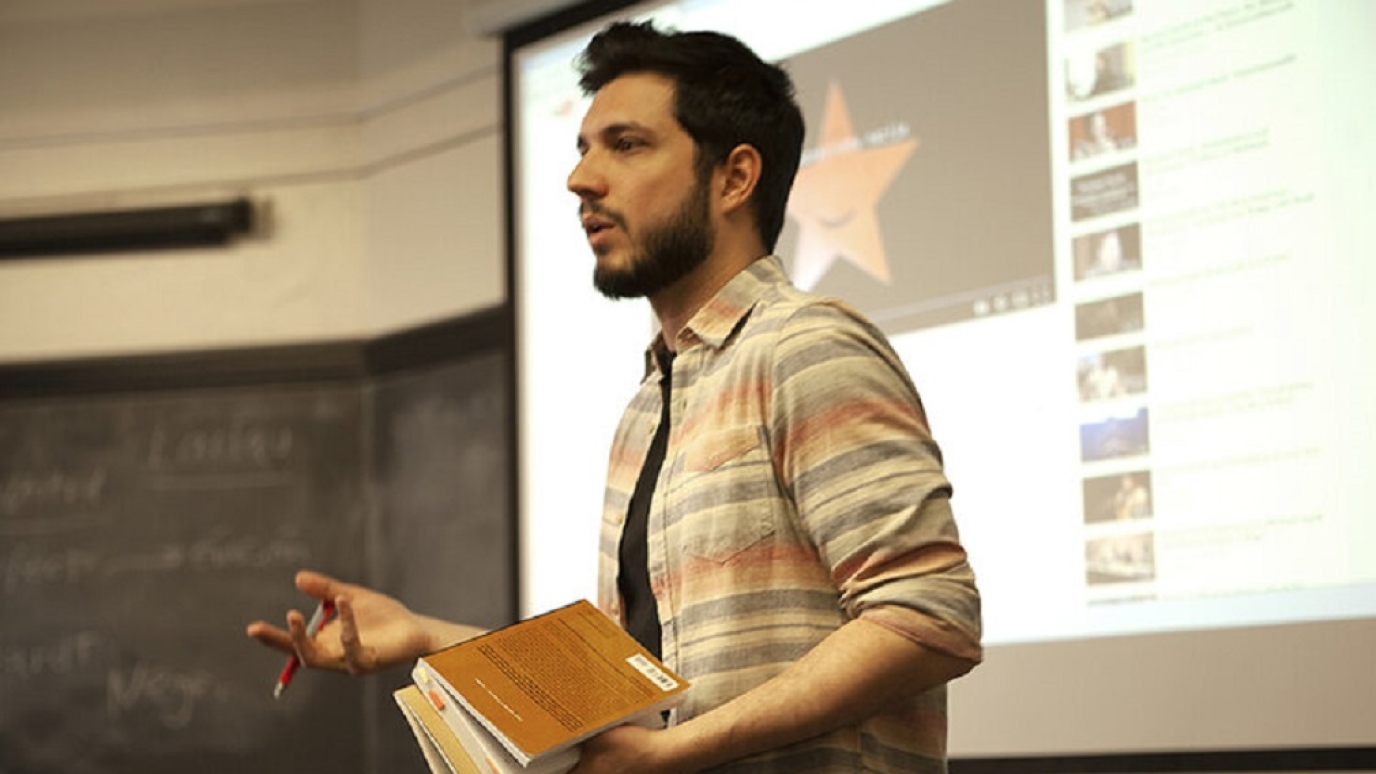
Santiago Acosta, a scholar specializing in the intersections of aesthetics, politics, and nature in Latin America, has been selected as a 2021–2023 fellow at the State University of New York at Old Westbury through the State University of New York’s (SUNY) Promoting Recruitment, Opportunity, Diversity, Inclusion, and Growth (PRODiG) initiative.
A graduate of Columbia University with a Ph.D. in Latin American and Iberian Cultures, Dr. Acosta will serve via a dual appointment in the College’s Modern Languages and History & Philosophy departments for the next two academic years and will be a central figure in launching the institution’s new Environmental Studies degree. His work at Old Westbury is funded by SUNY through PRODiG.
“I'm proud to join SUNY-Old Westbury this Fall,” said Dr. Acosta. “As the world faces unprecedented challenges, learning about global histories and knowledge — including Latin America — will play a crucial role in building a more just society. I'm thrilled to be able to contribute my share toward this goal in such a vibrant and diverse community.”
Dr. Acosta’s work focuses on Latin American literature and visual cultures and he has taught on Latin American art and film, often engaging with debates on the environmental humanities and the climate justice movement.
"Increasing the diversity of our faculty enriches the learning experienced by all of our students and positively impacts our community as a whole,” said Old Westbury President Timothy Sams. “Dr. Acosta brings an impressive resume of scholarship and teaching to our College. His voice and expertise relating to Latin American history and culture along with his understanding of issues related to the environment and climate will be a strong resource for our students as they prepare for the futures they envision for themselves.”
Dr. Acosta is the author of four poetry books. In 2018, his collection “El próximo desierto” won the José Emilio Pacheco Literature Prize “Ciudad y Naturaleza” awarded by the Guadalajara International Book Fair and the Museum of Environmental Sciences of Guadalajara University in Mexico. While in Caracas, Venezuela, he was a founding editor of El Salmón – Revista de Poesía, a quarterly journal devoted to archival work on Venezuelan poetry, which won a National Book Award in 2010.
The 2021–2023 PRODiG fellowship class is composed of 10 postdoctoral or advanced graduate students who will serve as visiting instructors across SUNY campuses. In his announcement of this year’s fellows, SUNY Chancellor Jim Malatras noted that SUNY needs to do more to attract and retain top faculty who mirror the increasing diversity within the student population.
“We must not simply pay lip service to diversity, equity, and inclusion,” Malatras said. “We must continue to take meaningful action. Creating a pipeline for talented underrepresented graduate students and postdocs to have a chance to teach and conduct research under our PRODiG fellowship will go a long way toward starting to close the equity gaps.”
New hires of underrepresented minorities are up more than 40 percent year over year across SUNY, attributable in large part to the PRODiG initiative. Each fellow is supported through mentoring, networking, and grants to foster his or her success and continued advancement. Candidates may apply from any higher education institution.
